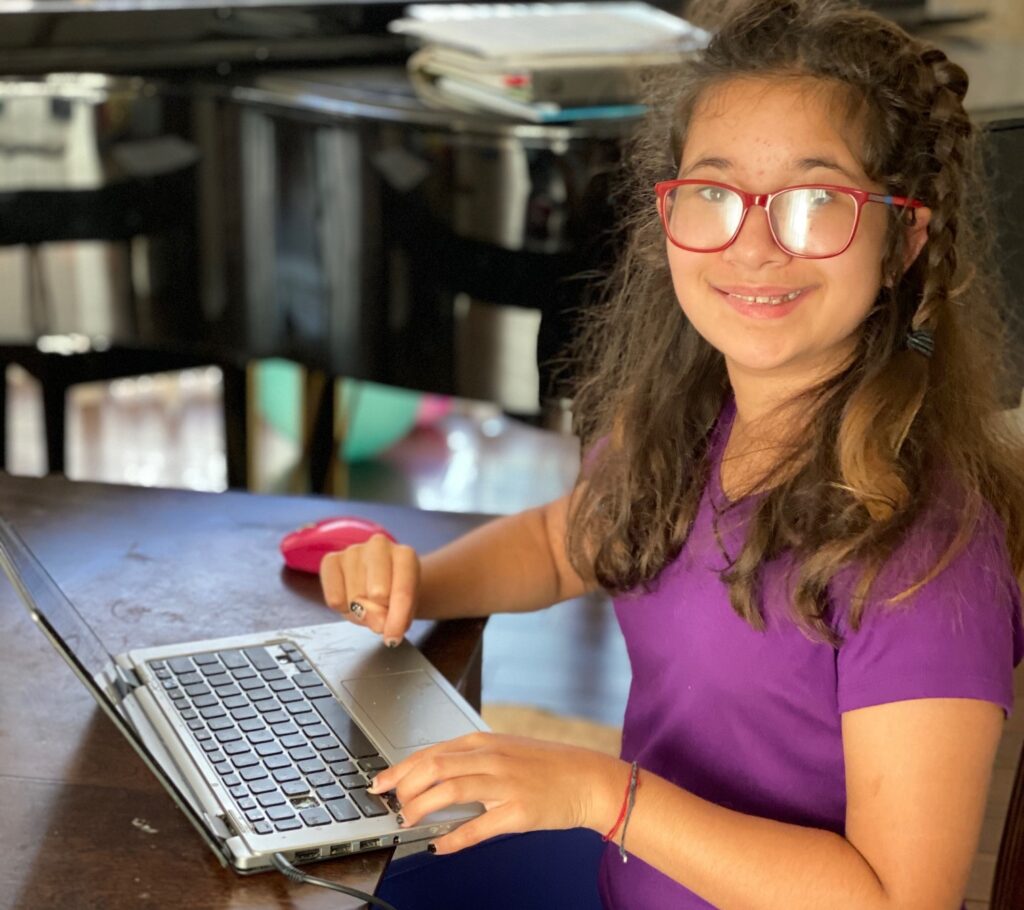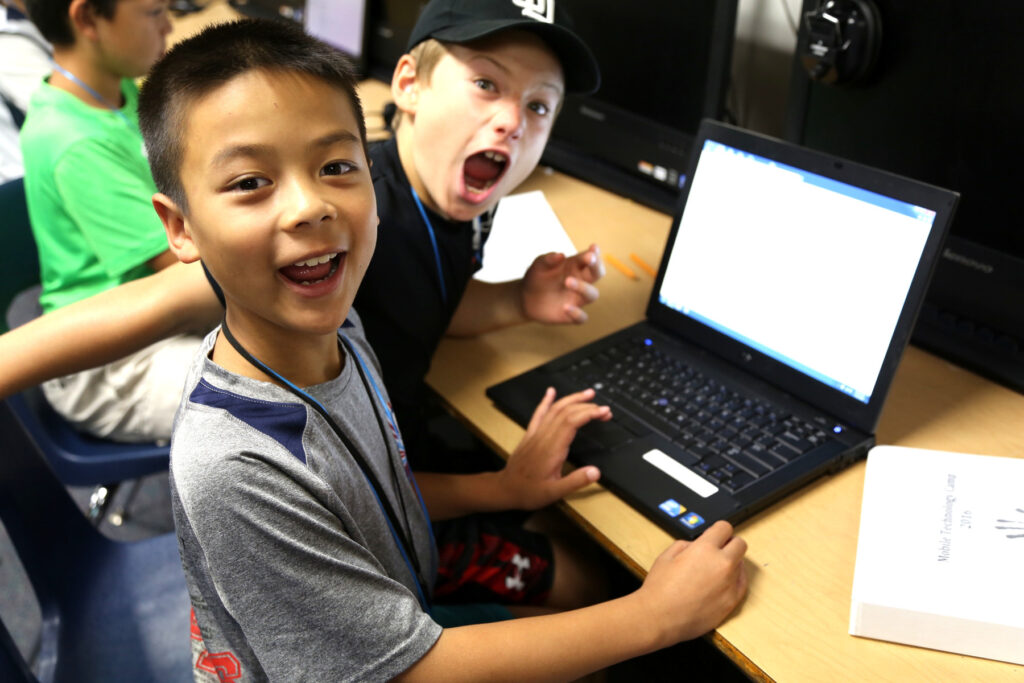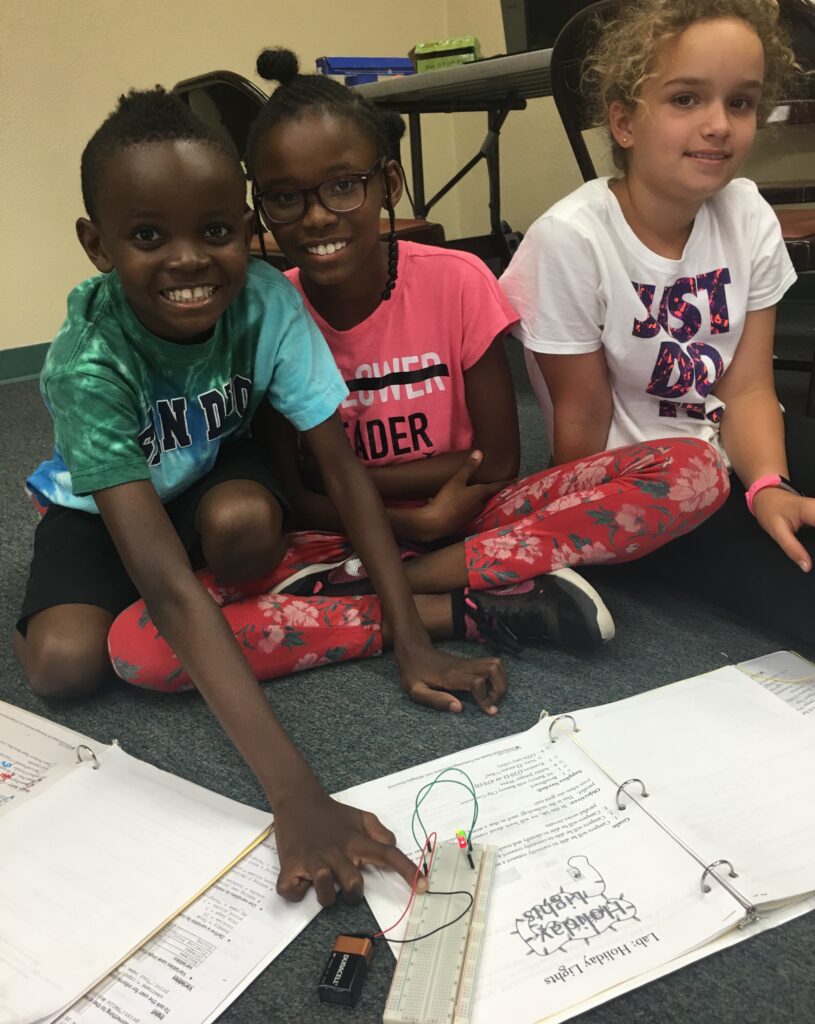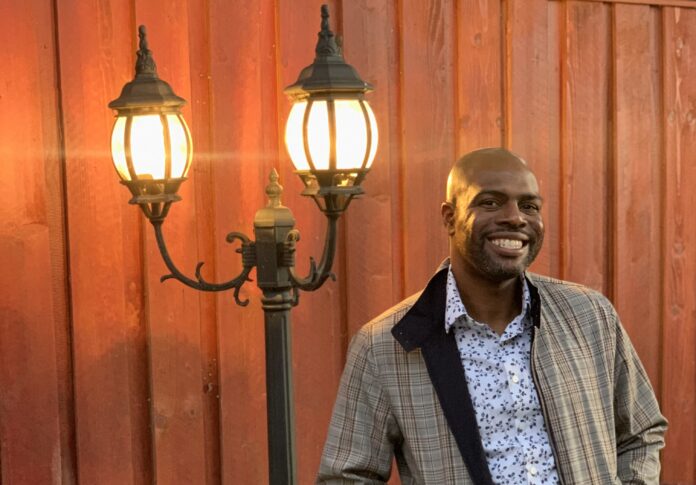( ENSPIRE Community Spotlight ) Engineer, Dr. Korey Swell Teaches the Youth
ENSPIRE Contributor: Ava Girardi
Dr. Korey Swell is taking his profession of engineering and educating the youth on technology through his educational program, Hands-On Technology Education. Through his passion for engineering and technology, Swell is educating the future generation on technology and the power it holds through fun and engaging activities.
Before starting his program, Swell had an early passion for teaching aspects of technology to others. During grad school, he designed his own curriculums and taught “Intro to Coding” workshops. He also taught the basics of computer science to students in middle school and high school to freshman and sophomores in college. With his experience teaching students with an interest in technology, he made his own educational program based on technology. He noticed during this time there became a growing interest in mobile devices as something to be used to promote learning.

In 2013, Swell launched his company, Hands-On Technology Education, which hosts a series of educational workshops and activities based on technology in San Diego. Through this program, students learn the basics of technology and applications that might spark an interest in technology and a future career path. The main philosophy of Hands-On Technology Education is to learn the building blocks of technology where students can learn the applications of computers and the basics of electrical engineering.
This program hosts after-school programs that offer lessons and activities on user interface design. They also offered summer programs with Computer Science objectives and Electrical Engineering projects. To learn these topics and methods engagedly, Hands-On Technology Education offers short presentations where students can learn various projects but also practice with mobile devices. Hands-On Technology Education knows each student learns differently, so it offers programs based on every student’s knowledge of the specific subject being taught, needs, and attention span.
Why do you think it’s so important for children to learn about the use of technology?
“From cars to phones to kitchen appliances to business systems, technology is so pervasive in our everyday lives, it’s imperative that kids not only learn about the use of technology but learn to leverage it for their benefit and interests! We want kids to not only be consumers of technology but builders of technology… collaborators with technology….”

Did you always have an interest in technology?
“Yes, of course! Like many kids, I was a big video game person and had many days playing Nintendo, Sega Genesis, & Xbox playing Madden Football, NBA2K, Legend of Zelda, James Bond, and more. That love for games sparked my interest in how these cool games were built and all the modern software and hardware that was needed to make complex systems that seemed so simple!”
Could you discuss the importance of Hands-On Technology Education and its mission?
“We have a mission of Exposure, not Exhaustion, to technology principles! It’s important that as many kids as possible, no matter their socioeconomic background, be given the opportunity to experience STEAM (Science, Technology, Engineering, Arts, & Math) in a fun and engaging way. Our mission is not to make everyone engineers or scientists but bring awareness and comfortability to technology education so that kids with a wide range of interests can leverage technology whether it’s their main career (e.g, NASA Astronaut) or a tool that assists another career (e.g., building a website for their business).”
“We also have a special interest in increasing the number of diverse and underrepresented students that take part in STEAM Fields and know that both our general efforts (e.g., public summer camps) and our specific outreach efforts (e.g., after-school tech program for underrepresented women in STEM ) will do just that.”

What inspired you to start this educational program?
“Helping kids grow is a passion of mine that I accidentally found! I worked at an elementary after-school program in college, and I got involved in tutoring and facilitating coding classes through grad school. I found that not only did I get a few extra scraps in my pocketbook, but that it was super rewarding, and you build true connections by just sharing knowledge! This evolved when I got my full-time engineering job and saw that the lego-based STEM program being offered at my son’s school (1st grade at the time) was fun but not quite enough … it didn’t attach to fundamental skill sets that I knew to be valuable (e.g. coding, electronics) or relate to a real-life application that would get parents and kids excited! I immediately set off to start my own after-school program at my son’s school and funded it out of my pocket (robots, tablets, you name it). I then drove around the city to find a principal that would let me host a summer camp at their school. Once I got a yes, we were off to the races and the program has been growing ever since.”

What are some methods and strategies you used to teach technology to kids?
“The best method we find is to make sure to ‘Engage’ them first with fun games, tasks, and real-life applications and then connect them to the fundamental skills once they are already excited! For teachers, this is probably using something like the ‘5E Model’ but for parents and community providers it’s simply finding what the kids like already, allowing them that freedom to enjoy it (e.g. video games, agriculture, robots, apps), and then finding the STEAM foundation (e.g. Computer Science) to let them build their skills.”
The younger generation is becoming more involved with technology at a young age and Hands-On Technology is promoting this change so students can learn more since more careers are heavily based on technology. With engaging programs involving electrical engineering and computer science, students can find an early passion for technology. Through Swell’s passion for education and technology, he wants children of all age groups to experience the benefits technology offers within an academic setting since our lives are becoming more dependent on technology. Learning technology can be a challenge, but Hands-On Technology education is to turn something challenging into something entertaining to grasp technological tools at a young age.
To learn more about Hands-On Technology, visit its site here.
Related Articles: Bloomingdale School of Music Awarded for Making Music Education Accessible, Quinta Brunson Toasts to Teachers at the TIME100 Gala







